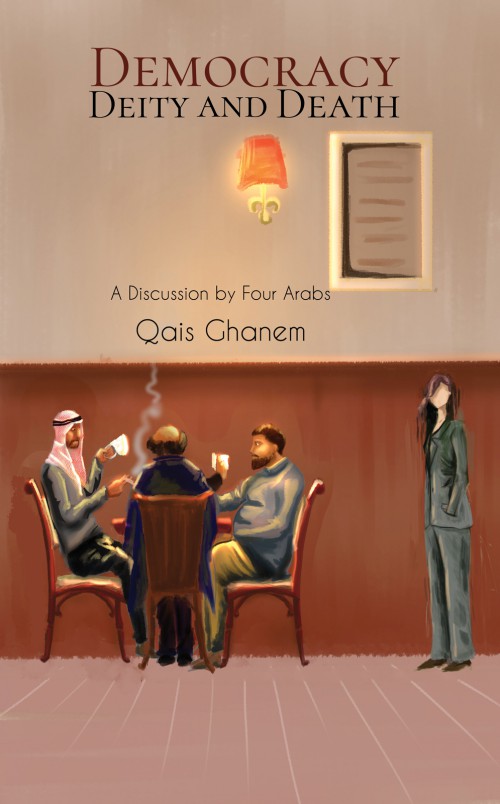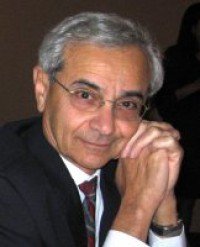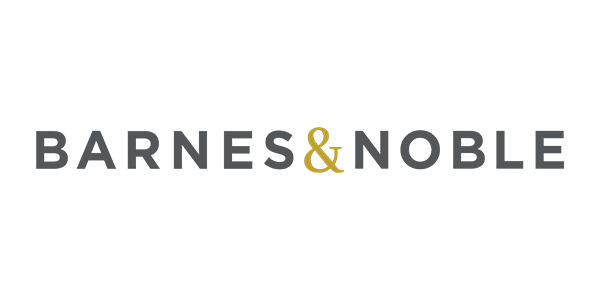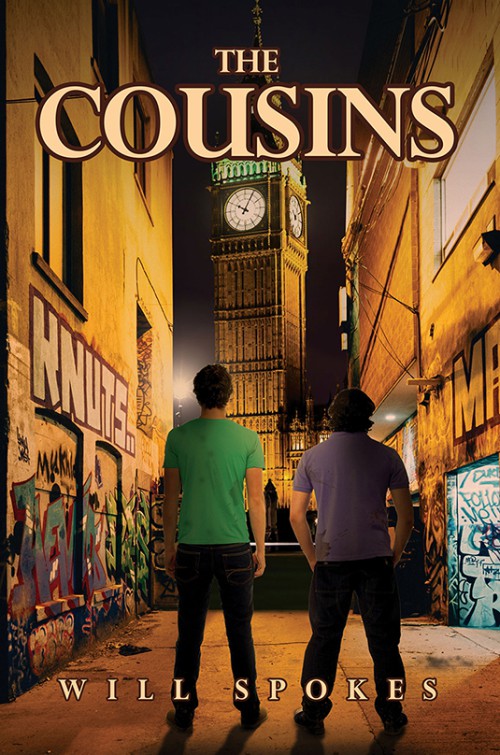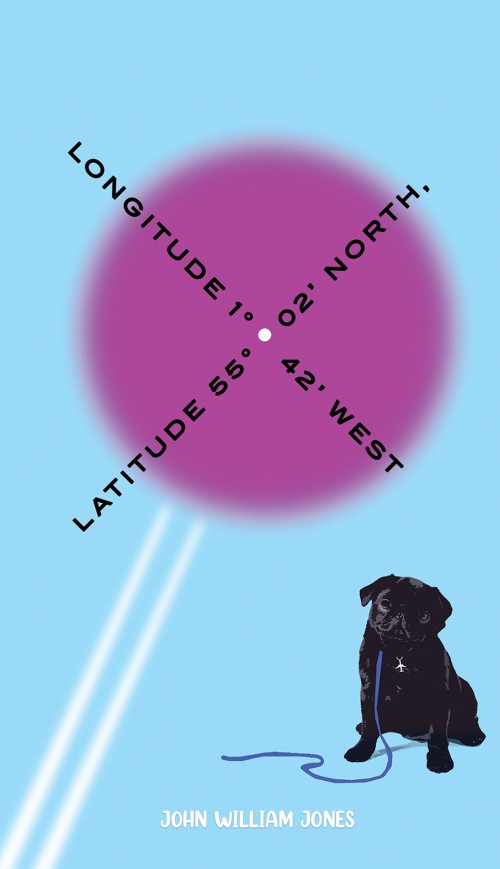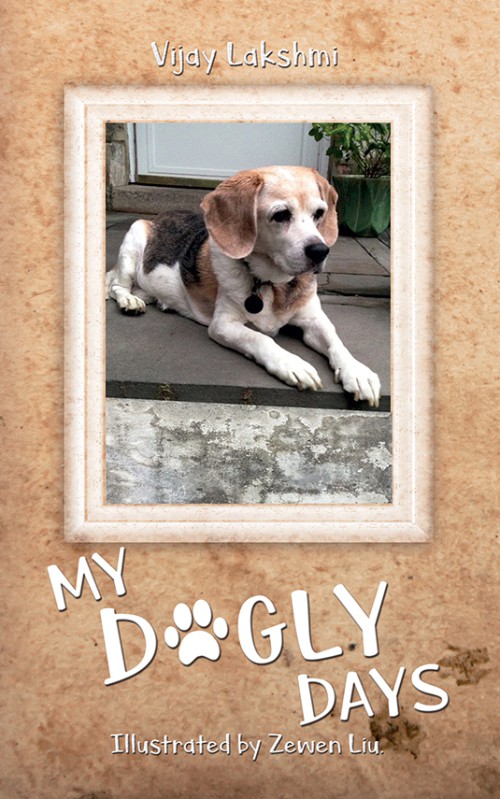-
This fast-paced and highly readable book by Dr Qais Ghanem describes discussions and debates among four Arab participants held on a regular weekly basis, almost always at a London café.
The participants include an elderly Egyptian professor based in Edinburgh, his niece, a bank manager who no longer follows Islamic beliefs or customs, her friend, a homosexual Lebanese Christian and, lastly, a devout Yemeni Muslim. Given the various backgrounds, past experiences and interests of these individuals, the discussions cover many topics that express their various beliefs with passion, candor and, at times, with humour! The sessions cover a wide variety of topics as is indicated in the volume title. These include democracy, deity, and death as well as a dictatorship, absence of a free press and a paucity of women’s rights.
The discussions are fast-paced, “ring true” and build in intensity as the text progresses with a number of humorous moments. The spoken text of the disagreements and agreements among the participants would make an excellent short piece of theater, where the participants would include the stark diversity of an elderly Egyptian professor based in Edinburgh, his niece who is a bank manager who no longer follows Islamic beliefs or customs, her friend a homosexual Lebanese Christian and lastly a devout Yemeni Muslim.
This book is highly recommended for all who wish to increase their understanding of the Middle East. It explores many of the problems and the richness of current Arab culture. Dr Ghanem is a Canadian of Yemeni origin and knows of what he writes.
Roger J. Broughton MD, PhD
Professor Emeritus, U of Ottawa
-
Once again, Dr Qais Ghanem, in his latest book, DEMOCRACY, DEITY AND DEATH, hits a high note.
He presents to the reader, characters who bring to the table different perspectives, ideas and beliefs. And, through the discussions and debates of these characters, the author imparts knowledge and views dealing with democracy, the varying degrees of beliefs and the finality of death. The four characters, being Arabs and from the Middle-East, bring to the fore the today issues of the struggle that the region is facing with resisting breaking away from hard-core beliefs and traditions, lack of education, poverty and being governed by dictators and sometimes despots.
This book is a worthwhile challenge to readers who are originally from the Middle-East, and, to the others, it will be a real eye-opener about a region that is still veiled in half-truths and mystique.
I highly recommend reading it. Actually, any curriculum of social studies would be enhanced by its inclusion. In its own way, this book challenges the inquisitive mind on two fundamental questions: “Where do we come from?” and, “Where are we going?”
Enjoy reading it, I am sure you will have a hard time putting it down till the end!
Essam Edgard Same`
Ottawa, Canada
-
In twelve short chapters, this book explores the wide field of current attitudes, beliefs and opinions that shape Arab Islamic views, as compared with those of their secular kinfolk. The stranger to Islam is gently led to a better understanding of its people by the conversation between the four characters in the book, as it unfolds often complicated issues.
I thank Qais Ghanem for opening a window onto the Arab mind and wish that I had read his words in my youth. I also wish that there were more writers of his ability to explain the internal problems of Islam. They do exist, he says, but mostly keep silence for fear of imprisonment or death. Islam does not tolerate dissent, an attitude that suits dictators and extremists alike.
John A.T. Duncan (Author of The Best of Health or Tales Out Of Medical School)
-
Ahmed F. Shalabi, PhD, P.Eng., Ottawa, Canada
As an Egyptian and a Canadian for more than 50 years, Dr Ghanem's discussion by 'Four Arabs' is a wonderful dialogue that highlights the diversity of hope and religious pluralism coexisting in the Arab world. The main theme of the book is a call for an intellectual revolution that allows Arabs to discover, discuss, self-criticize, self-deny, and re-negotiate above the laws without any theological input. I highly recommend it!
-
Dr. Ahmed Shalabi, Ottawa, Canada
For me, as a Canadian of Egyptian origin, for the past 50 years, Dr Ghanem's discussion by 'Four Arabs' is a wonderful dialogue that highlights the importance of diversity of hope for religious pluralism coexisting in the Arab world. The main takeaway from the book is a call for an intellectual revolution that allows Arabs to discover, discuss, self-criticize, self-deny, and re-negotiate above the 'laws' without any theological input. I highly recommend it.
-
I thoroughly enjoyed this thoughtful novel by Dr Ghanem. The quite diverse 'Four Arabs' maintained this reader's attention from the first page to the last. One might think that a novel that is based upon a series of discussions by the same four people, with hardly any other characters, would unavoidably be rather dry. Not at all. It was fascinating. For anyone seeking to broaden their understanding of the Arab world, this book provides a painless introduction, and, it's also a darn good read.
The Arab world is volatile, and a dangerously warming global climate will only exacerbate that. Holy books of all religions were written for the people of ancient cultures, but the world has moved on, negating many of their injunctions. And so, modernity calls, but Islam, all too often, stubbornly resists modernity. It is the same with all fundamentalist religions. One can only hope that temperate and progressive voices will become more prominent, perhaps as the four participants, drinking their coffee in comfort and security, discuss with wit and courtesy. That they have the insights both of maturity, and of youth, certainly makes this a thoughtful adventure in Arab affairs, and offers hope for a route to a better future.
-
Paul Maillet, Director of the Center for Ethics, Ottawa, Canada
2019 Book Review Democracy Deity and Death by Paul Maillet
A very informative read for anyone interested in the current coffee shop talk of the Arabic-Muslim community. From the perspective of four Arabs living in the west; this book is a tour of critical thinking and dialogue that is emerging in the Arab culture in counterpoint to the predisposition for unquestioning obedience to religious power, authority and autocratic regimes. A tour of that includes social issues long considered unexamined and unchallenged. Although the book is written in a lighthearted and easy conversational manner, it takes on serious questions and concerns.
The dialogue of the book explores the Arab Muslim struggle to acculturate the currents of technology, democracy and rights, with Arab history and culture. It explores the tension between finding a new place in the world in the face of the nostalgia for past glory.
The four Arabs touch on the causes and conditions of current Arab and Muslim culture in the mid-east and the west. They bemoan the current incompatibility of democracy, rights and freedoms with the power, war and violence of the Mid East They discuss culture having one foot in past glory, another in dictatorships and monarchies, corruption, suffering and war, all this in a struggle for some reconciliation with the rest of the world. I felt a pervasive a sense of angst and confusion for a culture they fear is in decline. The dialogue is a tour of the confusion of tribal, ethnic, sectarian, linguistic, religious, cultural and political currents in the Arab world that point to an uncertain future.
The book communicates a sense of despair and stubbornness for current conditions and lack of rights in Arab Muslim cultures. However, this book also is an important view of the weak signals that may presage a revolution in Arab culture. The path forward seems as long, as the history of the past. There is also a sense that such meetings in calmness and dialogue point to an understanding that something different can possibly emerge.
-
A good read for believers and non-believers alike:
As someone not overly familiar with the Quran or the intricacies of social structure in the Middle East, I found this book very eye-opening and insightful. The ideas are presented by four characters of different background and religion who get together to debate in a lighthearted manner.
It's a quick read that I would highly recommend!
November 26, 2019

